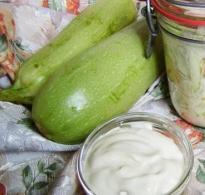Tea Moroccan Rose mini-buds "Elixir of Femininity" Barayem. Noble tea from rose petals
The beautiful rose, which people began to actively cultivate in ancient times, fully justifies its name of the “queen of flowers”. Delightful rose gardens were owned by representatives of the nobility in Ancient Greece and Ancient Rome.
The history of roses goes back several thousand years. Throughout this time, these beautiful flowers were grown not only for decorative purposes, but also for cosmetic and medicinal purposes. For several centuries, rose buds and petals have been used to prepare a real elixir of health and youth.
Luxurious rose flowers contain a lot of essential oil, which is highly valued. Especially often, rose essential oil is used in the cosmetic and perfume industries. Roses are no less popular in the culinary industry. Rose extract or the famous rose water is simply essential for the preparation of many excellent oriental sweet delicacies, well known all over the world.
Rose tea, as well as all kinds of decoctions and infusions prepared on the basis of this flower, have been widely used in alternative medicine since ancient times. With their help, it was possible to quickly and easily cure a lot of diseases and ailments.
The composition of rose tea does not contain leaves from the tea bush, so this drink belongs to the category of flower teas. The basis of wonderful tea is very young, not yet opened buds or petals of rose inflorescences.
It should be noted that as an excellent aromatic additive, rose petals are often added to large-leaf black tea - thus, an incredibly tasty and healthy invigorating drink is obtained.
As for the classic rose tea, it is an infusion of rose buds, which is characterized by a bright and rich color, as well as a pleasant floral aroma. By the way, according to professional tasters and true connoisseurs, rose tea is characterized by a pleasant enveloping taste and aroma with warm honey notes.
Beneficial features
In addition to the fact that rose tea is very tasty, it has a very beneficial effect on human health, well strengthening two important body systems - endocrine and immune. In addition, this tea has an excellent tonic and invigorating effect. And this drink is able to calm the nervous system and relieve pain. The infusion of rose petals is also actively used in the cosmetology industry - this natural healing agent has an excellent effect on the skin of the face and body, making it younger, more beautiful and healthy.
Mini-rose buds are small unopened flowers - a real quintessence of femininity, youth, alluring charms, enclosed in tightly twisted buds. Not yet bloomed, they store essential oil, as well as special bioactive substances that help maintain female beauty, youth and health.
Rose buds for tea are a traditional flavor additive used for cosmetic purposes. They reveal their taste especially brightly when added to red or black tea, filling it with a delicate floral aroma.
Rose tea (recipe):
Fill the buds with hot water - they will bloom, giving the infusion the brightness of colors. The brewed tea from rosebuds in a transparent bowl looks especially beautiful. The drink will acquire the aroma of a blooming rose, filled with a rich sweet-floral fragrance, a little tart with a slight bitterness. Deep, enveloping taste conceals the velvety sweetness of honey with a light smoky note and a long, delicate aftertaste. Organically complements the flavor bouquet of red and black teas, giving tenderness and sophistication.
Rose buds are added to tea in any proportion, depending on your taste, or an infusion is prepared from them for medicinal use.
Eating rose flowers for food or making drinks using flowers and flower waters is traditional in Eastern culture. The rose, as a symbol of femininity and beauty, has a particularly beneficial effect on the female body, improving and harmonizing its condition. Fills with a sense of confidence in their own attractiveness, softens, normalizes hormonal levels.
Infusion of buds can be used as an independent drink, combined with jasmine and chrysanthemum flowers, when brewed with other teas, they enrich with a bright floral aroma and new flavors.
Treatment and prevention:
The rose is considered a sacred plant in many cultures. This is not surprising - the most beautiful flower, a rich source of essential oil, one of the most effective and powerful in action.
Rose tea combines beneficial properties with a delicate aroma and exquisite taste. Rose has antiviral activity, strengthens the immune system, normalizes the supply of oxygen to the body, rose tea perfectly regulates the emotional state, improves the state of the endocrine system.
Rose infusion has many useful properties in its arsenal:
- relieves the course of colds and viral diseases,
- has analgesic and antiseptic properties, improves the condition of stomatitis, tonsillitis, laryngitis, pharyngitis. Relieves arthritis, rheumatism, bruises,
- enrich vitamin with vitamins and microelements,
- has soothing, restorative properties,
- rejuvenates the body.
Contains minerals and organic compounds necessary for the body: calcium, potassium, phosphorus, manganese, molybdenum, etc.
Selenium resists cell aging, and iodine helps with thyroid diseases. Copper and iron are actively involved in the processes of hematopoiesis, magnesium dilates blood vessels. The chromium contained in tea catalyzes the reactions of converting carbohydrates into glucose.
For women:
- Tea from rosebuds perfectly copes with the problem of migraine attacks, dizziness, nausea and general weakness, helps to normalize blood pressure,
- Tea highly effectively removes toxins and eliminates congestion in the body. It is used in courses of weight loss and recovery, to maintain the fortification of the body and help it cope with the difficult work of removing accumulated unnecessary elements.
- The level of hormones in the female body is normalized. This property helps women even at a young age, and is simply indispensable during a period when the hormonal background is unstable and needs to be adjusted. Rose is a natural remedy that slows down the onset of menopause, prolongs a woman's youth, relieves hot flashes and normalizes well-being. Restores strength and perfectly tones and restores the body,
- Helps to rejuvenate the body and maintain strength and beauty for many years,
Cosmetic use:
It is used to care for thin, delicate, sensitive, allergy-prone skin. Rose petals contain a high level of natural fatty acids, which restore the protective functions of the skin and effectively fight skin aging. Aqueous extracts from rose petals and creams with the addition of rose oil eliminate skin inflammation, irritation, and peeling.
A decoction of rose flowers is an excellent hair rinse.
Compresses with rose infusion help relieve fatigue, puffiness and inflammation of the eyes, refresh, sharpen the look.
Mode of application:
For cooking tea mix with tea leaves to taste or brew separately. To do this, the buds are poured with hot water 90C and infused in a warm place (it is advisable to heat the kettle on a spirit lamp or wrap it up) for 3-5 minutes.
For the treatment of inflammation of the oral cavity, periodontal disease, bleeding gums use a gauze pad soaked in infusion (see above). For a significant improvement in the condition, 4-5 procedures are enough.
For the treatment of sore throats: gargle with infusion of petals 3-5 times a day.
Rose water preparation: Pour a handful of buds with 0.5 liters of water, leave for 12 hours in a thermos. Strain and add 100 ml of any strong alcoholic drink or 50 ml of alcohol to the broth. Use as a cleansing lotion once a day. This rose water optimizes the protective properties of the skin, normalizes the functioning of the glands and gently cleanses the pores.
Applications for restoring skin tone, lymphatic drainage: moisten a clean soft cotton cloth in a pink infusion, apply on the skin of the face for 5-7 minutes, or make a compress on the silhouette correction zones.
Anti-cellulite wraps- are performed after warming procedures (bath, shower, sauna) or a special massage: grind the mass of rose buds used to make the infusion into a slurry, apply to the area of correction, soak a cloth in a pink infusion heated to body temperature, wrap the area of the body from above, make a warming compress for 30 minutes. This will tighten and strengthen the skin, remove excess fluid, enhance the effect of massage.
Rose water baths have a very strong positive effect. Dilute 200-300 ml of rose infusion in bath water. It will bring you relaxation, relieve fatigue and stress, cheer you up. Aromatic baths relieve skin inflammation and allergic rashes. It is recommended for all people and ages, especially when the body is weakened and depressive states.
To improve tone it is enough to wash the face and décolleté with pink infusion - after removing makeup in the evening or after waking up in the morning.
Soothes
Improves sleep
uplifting
Therapeutic effect
Anti-inflammatory and antimicrobial action
Strengthens the immune system
Body detoxification
Helps to get rid of excess weight
Place of production
general information
Chinese rose buds or Meigui Hua is the most delicate addition to pu-erh, white teas and oolong teas, as well as an exquisite independent drink. All of China idolizes these charming buds, carefully grown in the Shandong province. Their fragrance, bright rich taste and visual elegance will create for you a tea party in Heaven - impeccably gentle, delicate, opening up new facets of taste.
If you consider yourself a connoisseur and connoisseur of tea culture, you should definitely drink this fragrant soft pink drink. And be sure to try rosebuds as an addition to your favorite tea.
Infusion color
Light pink.
Taste and aroma
Airy, sweet taste with a long delicate aftertaste. Very nice, strong, floral scent! Natural rose oils are revealed with tea leaves in full force.
Beneficial features
Chinese rose buds contain an abundance of essential oils that have anti-inflammatory and antimicrobial effects, which helps in the fight against colds. Rose infusion rejuvenates every cell of the body and evens out skin tone. Also, the Chinese rose is rich in vitamin C - a faithful assistant to immunity. And the indescribable aroma has a beneficial effect on the emotional state.
Story
When did Chinese rose buds begin to be brewed in China? Many centuries ago, and still! Roses adorn life with a sweet fragrance, and transparent gaiwans with gently blossoming buds.
What could be better than a cup of aromatic tea if you need to cope with depression, confusion, confusion? Probably, only rose petal tea is a surprisingly gentle and romantic drink, which, moreover, has a number of useful properties.
Rose petal tea is a very beautiful drink. But that's not its main value.
Benefits of rose petals
Rose petal tea is not only very tasty and fragrant, but also very healthy. Even in ancient times, doctors knew that such tea refreshes, restores the ability to think, and puts the heart in order.
It is interesting! For quite a long time, rose petal tea was considered an "aristocratic" medicine, inaccessible to ordinary people.
Such a drink has an antiseptic, antibacterial, antiviral effect on the body. It is useful to drink it for colds, flu or other diseases of the respiratory system. When coughing, it is used as an expectorant. And if you add honey to tea, you get a cure for stomatitis and various inflammatory processes.
Rose tea will be very useful for problems with the gastrointestinal tract - an infusion of petals has the ability to soothe the mucous membrane of the digestive tract. In addition, the bright delicate aroma of tea improves mood and helps to get rid of depression or blues.
As in other cases, the medicinal properties of rose petals are determined by their composition:
- essential oils;
- several sugars;
- carotene;
- organic acids (including citric and malic);
- vitamins from group B, K, E, PP, C;
- tannin, flavonoids.
Rose petal tea helps to get rid of toxins, normalizes the intestinal microflora, copes with insomnia. In the form of lotions, it helps to fight conjunctivitis.
What kind of rose can be brewed?
Chinese rose is well suited for brewing tea. A drink from it helps cleanse the blood, is the prevention of blood clots. It also copes well with a hangover syndrome, and it will be useful for men also because it increases potency. In addition, it has a beneficial effect on the condition of the liver and gallbladder, normalizes blood pressure. Another useful property of Chinese rose tea is the removal of excess fluid from the body, which helps to get rid of edema.
Conventionally, red hibiscus tea can also be called rose petal tea, because Sudanese rose, also known as hibiscus, is used to make it. Sudanese rose tea has a rich history - it was served at the table even by the ancient pharaohs. Like other rose teas, hibiscus has many health benefits.
Collection and storage of petals
To get a really healthy and tasty tea, it is better to collect the petals yourself. For this, roses growing in their own summer cottage are best suited, since in this case you can be 100% sure that no harmful chemicals were used when growing them.
Collect the petals in the morning, before the dew has gone. It is advisable to do this after the past rain, which will wash away dust and insects from them. Only fully bloomed flowers are suitable for collection, but wilted petals should be avoided.
Before that, the flowers are sorted out - wilted petals, stamens, debris, sepals are removed. Then the raw materials are transferred to a sieve and shaken to remove the crumbled pollen.
It is not necessary to wash the collected petals, this can damage them, moreover, there is a risk of washing out some of the useful elements from them. But if desired, such a procedure can be carried out. It is better to rinse the petals with a sieve or colander, and then lay them out on a paper towel. After that, they can be used immediately for brewing or laid out to dry.
Like other medicinal herbs, the petals should be dried in a shaded, well-ventilated area, spread out in a not very thick layer. From time to time, raw materials should be turned and turned over to avoid rotting and mold.
If you dry the petals in an electric dryer, they will be slightly different from those that dried naturally - they will decrease in size, but they will retain their color. Because of this, dried raw materials can fall through the holes in the pallets, so it is better to line them with gauze or paper.
It is interesting! To give the flower petals a pleasant berry or fruity aroma, you can put strawberries or wild strawberries next to the petals to dry. In this case, the flowers will absorb the smell of berries.
Fresh petals can also be stored for some time, for example, if at one time it was not possible to collect the right amount for brewing tea. To do this, they are placed in a bag, tied tightly and put in the refrigerator. In this form, their shelf life is approximately 1-2 days.
Brewing methods
Rose petals can be brewed as an independent drink or flavored with tea leaves. Most often, pu-erh is subjected to this procedure, although you can mix a rose with any kind of tea.
To flavor your favorite tea with a rose, you need to mix dry tea leaves with dried rose petals and leave in a closed container for several days. During this time, the tea leaves will be saturated with a delicate aroma and you will get a delicious and delicate tea.
The easiest version of the infusion of rose petals:
- pour 2 tbsp into a mug. petals. Can be used both fresh and dried;
- pour warm water (not boiling water!). The water temperature should be within 70-80 degrees;
- leave tea under a saucer for 5 minutes;
- enjoy a fragrant drink.
You can not add either sugar or honey to such a drink, since it itself turns out to be quite sweet in taste. It has a rather distinct freshness with a sweet aftertaste and fruity notes.
Important! It is impossible to use petals from purchased rose bouquets for making tea - such flowers are grown using harsh chemicals that prolong flowering and kill pests. They will not add benefits to tea.
Tea for ulcers or gastritis
With various diseases of the gastrointestinal tract, you can brew tea from rose petals as follows:
- mix 10 g of chamomile, calendula, tea rose petals, horsetail and cudweed;
- add 20 g of leaves of wormwood paniculata, St. John's wort, plantain, dill seeds, agrimony grass, rose hips;
- and then another 70 g of yarrow.
The resulting collection will serve as a reserve for a long time. For brewing, take about 6 g of the mixture and pour it with 0.5 liters of boiling water, after which it is sent to a water bath for half an hour. Before use, tea should be filtered, and then drunk 4 times a day, 20 minutes before meals.
For burns and wounds
An infusion of rose petals as part of the collection can be used in the form of lotions for the treatment of wounds and burns. To prepare the collection you need to mix:
- rose petals, horsetail, verbena leaves, oak bark (10 g each);
- sage leaves, chamomile flowers (5 g each).
The collection is poured with a liter of boiling water and insisted for no longer than half an hour. Strained infusion moisten the cloth and apply it to the affected areas.
Rose honey for tea
Such honey will give the tea a delicate aroma and help to cope with a sore throat or beriberi. For cooking, you will need 200 g of rose petals (tea rose or wild rose) and liquid honey.
Some of the petals are laid out in a bowl and poured with honey, after which, using a wooden spoon, they begin to crush and rub them until they decrease in size. After that, another portion of the petals is added. This continues until all the petals are mixed with honey.Important! It is not necessary to rinse the petals so that water does not get into the honey.
Then the mixture is transferred to a pre-prepared (washed and sterilized) jar. It must be completely dry! Another spoonful of honey is added on top to cover the protruding petals. This honey should be stored in the refrigerator.
Honey can be added to any tea - put a spoonful of petals in a mug, pour tea, stir and let it brew for a couple of minutes. If the petals interfere, the drink can be strained.
Contraindications
There are not so many contraindications for rose petal tea. Since the rose is considered a potential allergen, tea with rose petals is not recommended during pregnancy and lactation, as well as for children under 3 years of age. And, of course, you can not use it with individual intolerance to the drink.
Rose tea is not only a romantic and fragrant drink, but also a source of good mood. And besides, it is very beneficial for health. Having prepared rose petals in the summer, you can pamper yourself all winter with a tonic and refreshing drink that will protect against colds and beriberi.
Many people like this tea, you can use a simple recipe for brewing tea from rosebuds.
rose petal tea
Based on a glass of boiling water (slightly cooled), you will need a tablespoon of dry rose buds. The buds do not need to be brewed for long, a pleasant taste will be obtained after a five-minute brewing. It is necessary to drink such tea with dried fruits in a bite, without sweetening.
Rose tea, beneficial properties
Drinking rosebud tea is most beneficial for the liver, especially after holiday feasts with heavy fatty foods. It is considered the most real, natural detox!
But of course, in order to make tea from rose buds, you need to take not the roses that you bought at a flower kiosk or in the market. There will be no benefit from such tea, but the harm to the body can be huge.
Those roses that are sold in kiosks and shops are usually brought from other countries, most often from Holland. In order for roses to retain their fresh appearance for a long time, they are placed in a special nutrient solution and, accordingly, rose buds absorb all the substances from this solution, which in turn are harmful to the human body.

To make rose tea, a special variety of roses is used, which contains a large amount of essential oils, moreover, the buds must not be opened. Most often, these buds are used as an additive to black or red tea, thanks to this additive, the taste of tea acquires a unique floral aroma.
Such buds can be used not only as an additive to tea, but also for cosmetic purposes. made from rose petals helps to rejuvenate the skin.
The taste of rosebud tea
In the process of brewing, rosebuds will bloom beautifully and give all their colors to the infusion. Rosebuds will look especially beautiful when brewed in a transparent container. The taste of tea will acquire an unusually delicate, sweetish-floral rose aroma with a hint of light tobacco.
Infusion of rosebuds can be used as an independent drink, but if desired, it can also be brewed with other types of tea. The taste of tea will receive new shades and a pleasant floral aroma.
Best of all, rose buds will be combined with varieties of pu-erh tea and red tea. But it can also be combined with and either with jasmine or chrysanthemum petals, with cinnamon.






